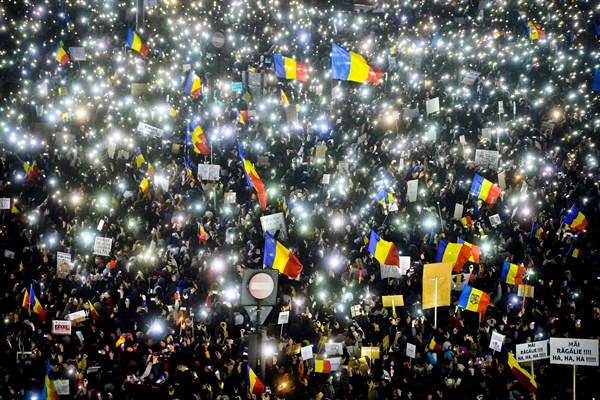Romania’s biggest protests since the fall of communism in 1989 have been widely hailed as a victory for people power and civic activism against a corrupt elite. The weeks-long mass demonstrations, which led to Prime Minister Sorin Grindeanu’s new government backing down on controversial plans to weaken anti-corruption laws, energized those previously unengaged with politics. But long-term questions remain about democracy in Romania, where street protests have become increasingly frequent as Romanians lose faith in their political parties.
Protests began in January against plans by the government, which is led by the left-leaning Social Democratic Party, or PSD, to effectively decriminalize the abuse of power in corruption cases where sums involved did not exceed 200,000 lei—about $47,000. Offenses falling under the threshold would not be punishable by jail sentences. Separately, the government planned to pardon those convicted of a range of crimes that carried prison sentences of less than five years. Corruption has long been a scourge in Romania.
The demonstrations rapidly escalated when the measures were passed in a secret emergency ordinance. More than half a million Romanians took to the streets to demand that the administration back down. They were joined by President Klaus Iohannis, whose election in 2015 was backed by both centrist and right-wing parties, as well as opposition politicians. Iohannis’ position gives him some leverage over domestic politics, and as president his powers included nominating Grindeanu after elections late last year.

